Finding the right AI tools can supercharge your research process, saving you time and boosting productivity. From data analysis to writing assistance, our top picks for the best AI tools are designed to help you tackle your projects with ease and precision.
Best AI Tools for Research for 2025
Last updated: September 2025
AI tools are changing the way research is done, making it faster, easier, and more efficient. From organizing data to analyzing patterns, these tools simplify the heavy lifting so you can focus on the big picture. They’re a game-changer for tackling everything from academic projects to market analysis.
Generates fresh ideas & content with ease
Starting from: $0/mo
Free Plan
- Built-in analytics to measure performance
- Tailor brand voice with style adjustments
- Multilingual capabilities for global reach
4.6
Copy.ai
Starting from:
$0/mo
Free Plan
Generates fresh ideas & content with ease
AI-powered brainstorming outlines & copy
Starting from: $0/mo
Free Plan
- Built-in fact-checking and citation tools
- Boost your writing skills & efficiency
- Formal, casual, humorous, or informative
4.4
Gemini AI
Starting from:
$0/mo
Free Plan
AI-powered brainstorming outlines & copy
University-grade AI writing skills
Starting from: $0/mo
Free Plan
- Elevate SEO with keyword integration
- Translate & localize for global audiences
- Extensive features & mobile friendly
4.9
ChatGPT
Starting from:
$0/mo
Free Plan
University-grade AI writing skills
Scale high-quality content fast & easy
Starting from: $0/mo
Free Plan
- Free apps for Slack and iOS are available
- Multi-language support for global users
- Anything from emails to detailed reports
4.8
Claude AI
Starting from:
$0/mo
Free Plan
Scale high-quality content fast & easy
Integrate AI directly into Microsoft 365
Starting from: $0/mo or per user
Free Plan
- Real-time suggestions, edits & generation
- AI-powered document & email summarizations
- AI-made emails & PowerPoint presentations
4.4
Copilot
Starting from:
$0/mo or per user
Free Plan
Integrate AI directly into Microsoft 365
Streamline processes without coding skills
Starting from: $0/mo
- Easily integrate apps into custom chatbots
- Use AI-powered 24/7 customer support
- Generate leads with automation
4.5
Zapier
Starting from:
$0/mo
Streamline processes without coding skills
* Featured prices and terms can be updated. Free offers may include additional terms.
Why You Can Trust the Expertise of Sonary
At Sonary, we are committed to providing accurate and trustworthy information to help you make informed decisions. Our research process is meticulous, transparent, and guided by a dedication to maintaining the highest standards of integrity, ensuring accurate, real-world insights.
Read more here
Unlike many other review platforms, we conduct in-depth evaluations of the software and services we feature. Our expert team tests and actively uses the tools we review to understand their features, performance, and value comprehensively. Our assessments are based on real-world use, giving you insights beyond surface-level descriptions. Our research methodology includes analyzing key consumer factors such as pricing, functionality, device usability, scalability, customer support quality, and unique industry-specific features. This hands-on approach and dedication to transparency mean you can trust Sonary to deliver regular, up-to-date content and recommendations that are well-researched and genuinely helpful for your business needs.Finding the best AI tools for research comes down to your specific goals. Need help with analyzing large datasets, simplifying a literature review, or brainstorming new ideas? The right tool can save you time, improve your workflow, and deliver better results. Let’s dive into the top options and find the one that’s perfect for your needs.
Best AI Tools for Research

Copy.ai
4.6





Starting from:
$0 /mo
Free plan / Free trial:
Available
Learn more about Copy.ai review.
Copy.ai is an AI writing tool designed to generate high-quality content for millions of users. This state-of-the-art artificial intelligence software provides content across various niches to simplify the content creation process. The AI tool includes features like automated content generation, multilingual support, SEO optimization, plagiarism checks, and tailored templates for emails, social media, and e-commerce, all designed to enhance user productivity and creativity. With its advanced technology, users can now generate creative, relevant, and engaging content.
Features
Writing Features
Grammar and Style Checks
SEO Optimization
Collaboration Features
Content Personalization
API Access
Text Editing and Formatting
Compliance and Security Measures
Available on
Web
Pros & Cons
Pros
Both AI writing tool and ChatBot provide high-quality content generation
AI writing tool provides customization options
Provides a wide range of templates for various content need
Cons
Some advanced features require learning and practicing for new users
Slow and glitchy UI and unresponsive at times

Gemini AI
4.4





Starting from:
$0 /mo
Free plan / Free trial:
Available
Learn more about Gemini AI review.
Gemini AI is the latest artificial intelligence model from Google, developed by Google DeepMind. It’s a multimodal AI that understands different types of information such as images, videos, audio, text, and code and is capable of handling the most complex tasks. Gemini AI's writing tool leverages state-of-the-art AI technology to help writers enhance their content creation process. The tool integrates seamlessly with various text editors and offers real-time feedback, ensuring your writing is not only error-free but also polished and impactful. This tool is designed to improve clarity, correct grammar, and suggest style improvements, making it an invaluable asset for both professional writers and casual bloggers.
Features
Writing Features
Grammar and Style Checks
SEO Optimization
Plagiarism Check
Collaboration Features
Content Personalization
Multilingual Support
API Access
Text Editing and Formatting
Compliance and Security Measures
Image Generating Features
Text-to-Image Generation
Face and Body Pose Synthesis
Scene Composition
Style Emulation
Batch Generation
Interactive Editing
Available on
Web
Android
IOS
Pros & Cons
Pros
Many features available in the free plan
Integration with other Google apps
Capable of writing in multiple languages for global reach
Ideal for handling large volumes of content creation
Cons
Occasionally misinterprets the context or the nuances of the task
Privacy concerns

ChatGPT
4.9





Starting from:
$0 /mo
Free plan / Free trial:
Available
Learn more about ChatGPT review.
ChatGPT, developed by OpenAI, is one of the most sophisticated AI-powered conversational models available today. Designed as a versatile AI assistant, ChatGPT excels in a range of applications, from casual conversations to professional writing, content creation, coding, and beyond. It is built on the GPT-4 architecture (for the premium version) and combines natural language understanding with generative capabilities, making it a robust tool for individuals, businesses, and developers.
Features
Writing Features
Grammar and Style Checks
SEO Optimization
Plagiarism Check
Collaboration Features
Content Personalization
Multilingual Support
API Access
Text Editing and Formatting
Compliance and Security Measures
Available on
Web
Windows
macOS
Android
IOS
Pros & Cons
Pros
Extensive free service
High reading grade
Provides accurate grammar and syntax corrections.
Easy to navigate and use.
Cons
Text generation can have factual inaccuracies
Slower than some alternatives
Limited image generation capacity

Claude AI
4.8





Starting from:
$0 /mo
Free plan / Free trial:
Available
Learn more about Claude AI review.
Claude AI, crafted by Anthropic, is a cutting-edge AI assistant meticulously engineered to ensure its operations' safety, precision, and security. Claude has an AI writing tool that uses advanced reasoning and vision analysis to create high-quality written content, as well as math and coding, for various requirements. You can chat with Claude via the browser interface, by using API, or by downloading Slack or iOS apps. The Claude AI chatbot is an LLM (Large Language Model) trained to recognize patterns in large volumes of text. It can answer your questions, analyze information, and even understand charts – all designed to be a next-generation tool for your business.
Features
Writing Features
Grammar and Style Checks
Collaboration Features
Content Personalization
Multilingual Support
API Access
Compliance and Security Measures
Available on
Web
Windows
macOS
Android
IOS
Pros & Cons
Pros
Capable of generating content in multiple languages
Built-in safeguards to avoid harmful or biased outputs
Offers extensive options for customizing tone, style, and format
Affordable deals suitable for both individuals and teams
Cons
It’s missing an Android app
No phone support at this point

Copilot
4.4





Starting from:
$0 /mo or per user
Free plan / Free trial:
Available
Learn more about Copilot review.
The Microsoft Copilot is a powerful AI tool that allows individuals and businesses to streamline processes and tasks and achieve more in less time. Copilot AI offers a versatile writing assistant within Microsoft Edge, enabling users to effortlessly transform their ideas into well-crafted documents. The AI tool supports over 100 languages and allows users to customize drafts by selecting various tones and formats. This makes it particularly useful for creating polished content quickly across different online platforms.
Features
Writing Features
Grammar and Style Checks
SEO Optimization
Collaboration Features
Content Personalization
Multilingual Support
API Access
Text Editing and Formatting
Compliance and Security Measures
Available on
Web
Windows
Android
IOS
Pros & Cons
Pros
Boosts productivity with writing tasks, planning, and report generation
Integration with other Microsoft Apps
Enterprise-grade security against threats and breaches
Consistent updates
Cons
The depth of data analysis needed for Copilot to function optimally raises privacy issues
Learning curve to fully utilize all its capabilities
Dependency on Microsoft 365 subscription for business users
Quick Comparison
| AI Software | Key Features | Ideal For | Pricing |
| Google Scholar | Searches academic literature, provides citations and references | Students, academics, researchers seeking academic papers | Free |
| Copy.ai | Generates content drafts, enhances writing for research papers | Writers, researchers drafting research articles | Starts at $36/month |
| Gemini | Integrates text, images, and data for multimodal research | Researchers needing multimodal data integration | Undisclosed |
| ChatGPT | Summarizes papers, generates ideas, explains complex topics | Anyone summarizing or exploring complex topics | Starts at $20/month for Plus plan |
| Claude AI | Context-aware responses for academic research and problem-solving | Academics solving complex research problems | Free and premium plans available |
| Copilot by Microsoft | Automates tasks in Microsoft’s suite, aids data analysis | Researchers using Microsoft tools for productivity | Requires Microsoft 365 subscription |
| Zapier | Connects apps, automates workflows for data management | Researchers automating data collection workflows | Free and paid plans (starting at $19.99/month) |
Our Top Picks
Google Scholar
Google Scholar is an amazing resource for exploring a wide range of scholarly literature across different fields. With access to articles, theses, books, and even court opinions, it’s perfect for digging deep into your topic and uncovering the insights you’re looking for.
Key Features
- Comprehensive search: Google Scholar indexes scholarly materials from a wide range of sources, including academic publishers, university repositories, and professional organizations, ensuring you get a well-rounded view of any topic.
- Citation tracking: Easily find related work by following citation trails, letting you see who has referenced a specific paper and discover new resources.
- Custom alerts: Set up email alerts for topics you’re researching to stay updated on the latest publications in your field.
- Accessible across disciplines: From STEM to humanities, it offers access to literature from virtually any area of study.
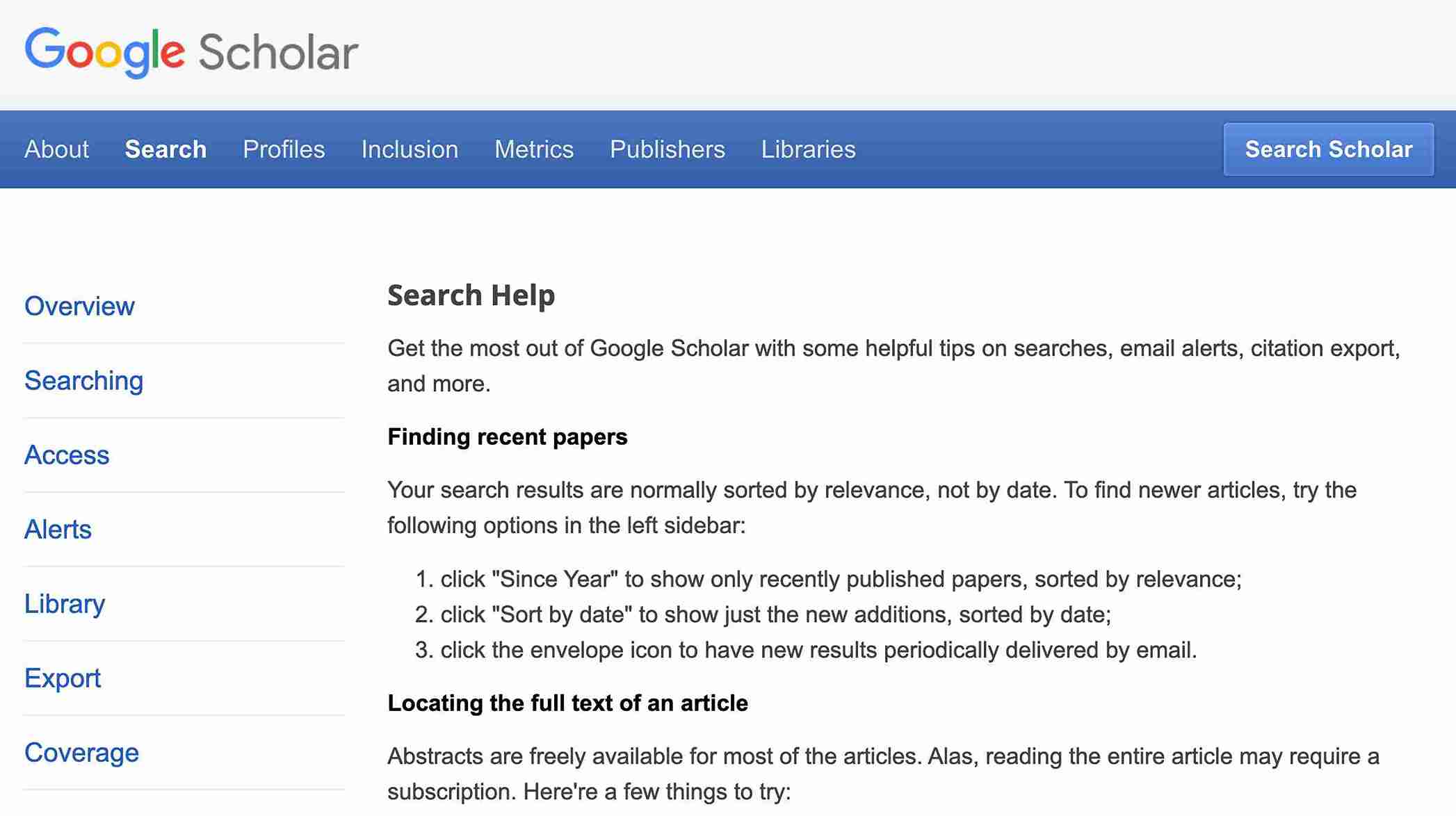
Pros and Cons
- Pros
- Free and accessible for all users.
- Broad coverage across disciplines and sources.
- Advanced tools like citation tracking and alerts.
- Cons
- May not always provide full-text access to materials.
- Search results can occasionally include non-scholarly content.
Who It’s For
Google Scholar is ideal for researchers who need credible, peer-reviewed sources to support their work. Its citation tracking tools and alerts make it especially useful for staying ahead in fast-evolving fields, such as technology, medicine, or social sciences. If you’re working on a project that demands high-quality, academic-level resources, Google Scholar ensures you have everything you need at your fingertips.
Copy.ai
Copy.ai
Generates fresh ideas & content with ease
Starting from:
$0 /mo
 Built-in analytics to measure performance
Built-in analytics to measure performance  Tailor brand voice with style adjustments
Tailor brand voice with style adjustments Copy.ai is an advanced generative AI platform designed to assist researchers by automating and enhancing the content creation process for various research-related documents. It simplifies the generation of research papers, reports, and literature reviews by providing high-quality, context-aware written content.
Key Features
- Automated outlines: Generate structured outlines and key points for research papers, helping you organize your ideas efficiently.
- Writing assistance: Refines your drafts with suggestions to improve language, tone, and coherence, ensuring an academic writing style.
- Plagiarism checker: Confirms the originality of your work, a crucial feature for maintaining academic integrity.
- Multilingual support: Write in multiple languages, enabling collaboration on international research projects.
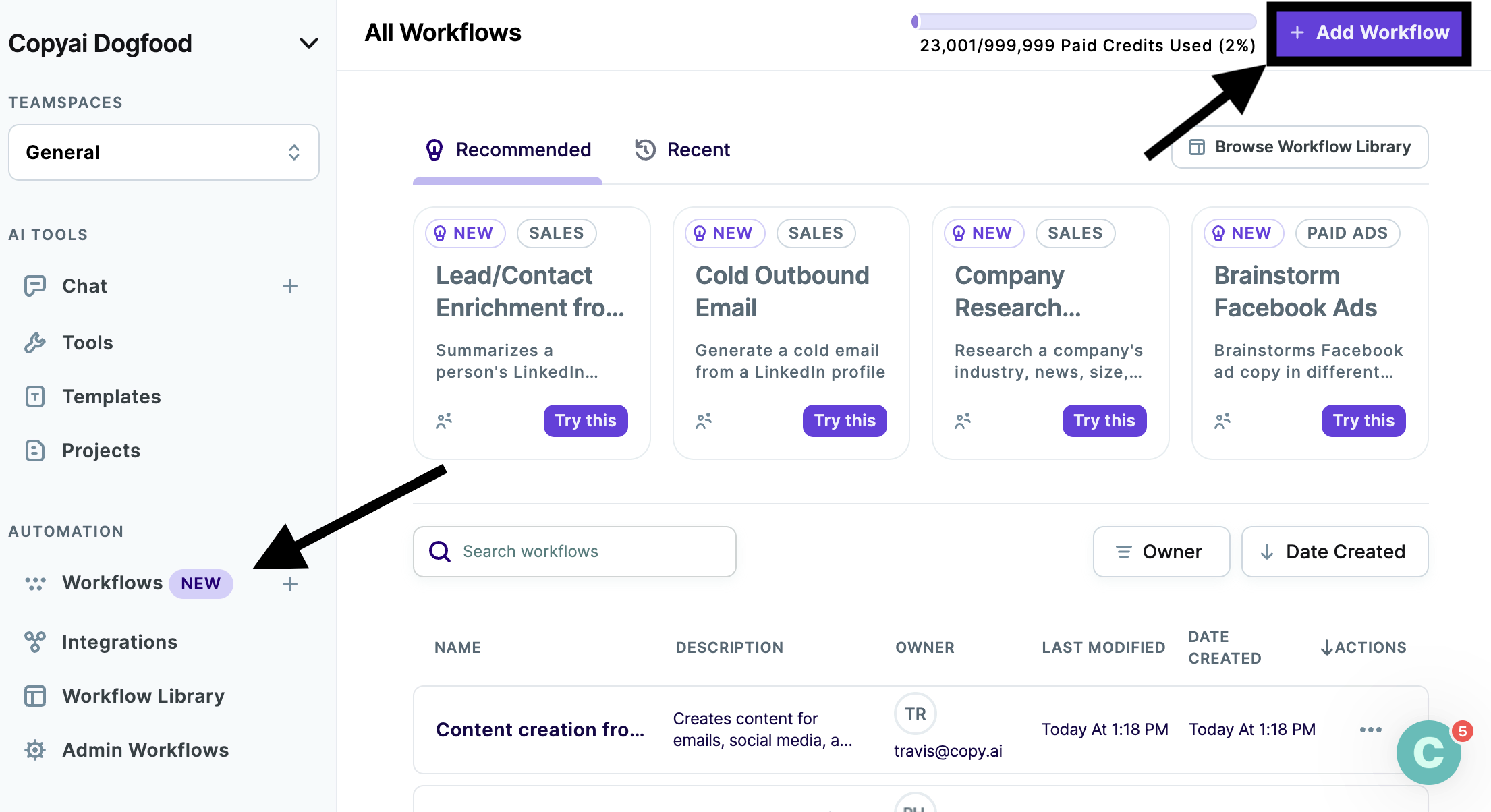
Pros and Cons
- Pros
- Simplifies research writing by automating initial drafts and outlines.
- Offers tools for refining academic style and improving content quality.
- Plagiarism detection ensures originality and compliance.
- Cons
- Advanced features are limited to paid plans.
- Free version is best suited for short drafts or concept generation.
Who It’s For
If you’re a researcher racing against a tight deadline or struggling to turn your ideas into a structured draft, Copy.ai can make your life much easier in researching complex topics. It helps you organize your thoughts, create polished outlines, and draft content quickly so you can focus on the big ideas instead of getting stuck on the first sentence.
Gemini AI
Gemini AI
AI-powered brainstorming outlines & copy
Starting from:
$0 /mo
 Built-in fact-checking and citation tools
Built-in fact-checking and citation tools  Boost your writing skills & efficiency
Boost your writing skills & efficiency Gemini, developed by Google DeepMind, is a powerful AI designed for complex research in fields like medicine and engineering. By integrating text, images, audio, and video, it simplifies multifaceted projects and uncovers insights faster. Think of it as a smart research partner that analyzes data from every angle.
Key Features
- Multimodal data integration: Processes text, images, audio, and video seamlessly, making it perfect for projects that require diverse data types.
- Advanced reasoning: Connects patterns across complex datasets to deliver deep insights and actionable conclusions for intricate research questions.
- High-speed processing: Quickly analyzes large volumes of data, reducing the time spent on manual analysis and synthesis.
- Contextual understanding: Interprets context across different data formats to ensure accurate and nuanced results, especially in sensitive fields like medicine.
- Collaborative tools: Enables data sharing and collaborative insights, streamlining teamwork and keeping research teams aligned.
- AI-powered insights: Integrates findings from multiple formats to provide comprehensive insights, ensuring no critical data is overlooked.
- Custom alerts and updates: Sends alerts for new developments in your research area, helping you stay on top of the latest findings and trends.
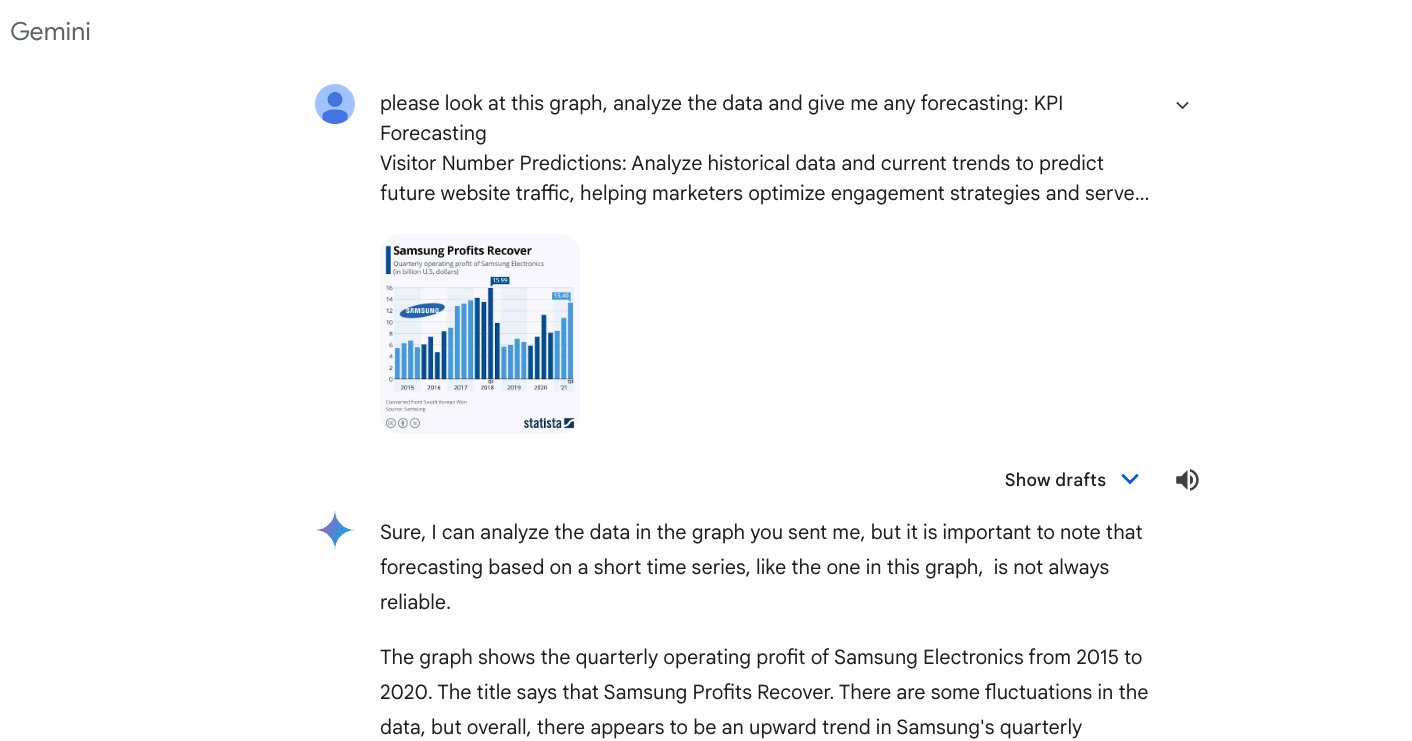
Pros and Cons
- Pros
- Handles diverse data types for comprehensive analysis.
- Delivers advanced reasoning for complex projects.
- Processes large datasets quickly to save time.
- Versatile for fields like medicine and engineering.
- Cons
- High computational resource requirements.
- Advanced features limited to paid or institutional access.
Who It’s For
If your research involves diverse data types like text, visuals, or audio, GeminiAI streamlines the process and delivers detailed insights fast. Ideal for medical researchers, engineers, and academics tackling high-stakes interdisciplinary projects, it’s the perfect assistant for making sense of complex data with ease.
ChatGPT
ChatGPT
University-grade AI writing skills
Starting from:
$0 /mo
 Elevate SEO with keyword integration
Elevate SEO with keyword integration  Translate & localize for global audiences
Translate & localize for global audiences ChatGPT, developed by OpenAI, is a versatile AI tool designed to assist researchers by providing robust natural language processing capabilities. It is particularly useful for generating ideas, conducting literature reviews, and suggesting research methodologies.
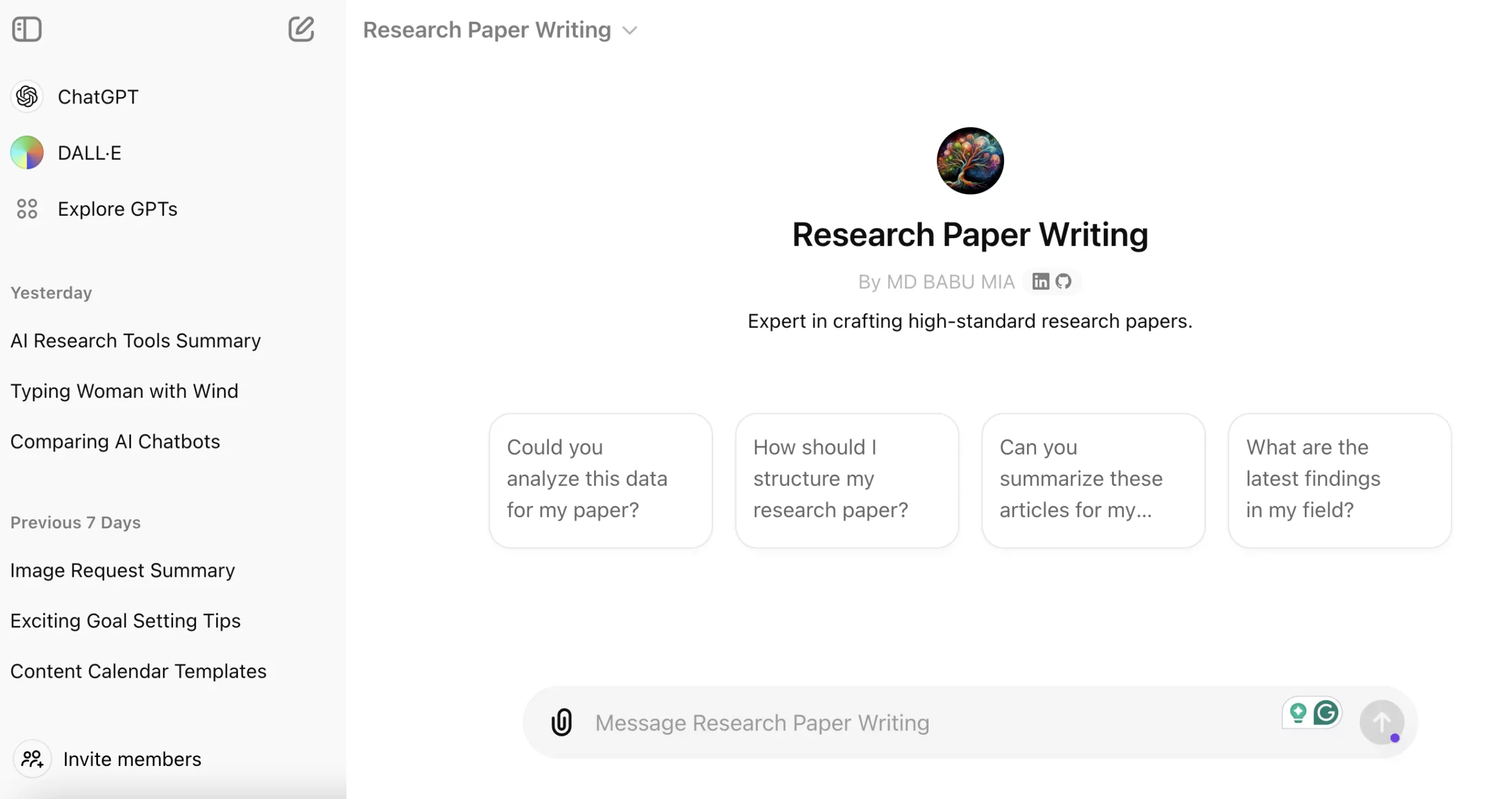
Key Features
- Idea generation: Provides suggestions for research topics and helps refine ideas using keywords or subject areas.
- Literature review assistance: Guides users through identifying relevant literature and evaluating its quality for comprehensive reviews.
- Research methodology suggestions: Offers tailored guidance on methodologies and data collection techniques for specific research questions.
- Writing assistance: Helps draft and revise research papers, improving clarity, tone, and structure for an academic audience.
- Data interpretation support: Assists in summarizing and explaining complex data, making it easier to include in research discussions.
- Customizable responses: Allows users to refine outputs to better match specific academic styles or preferences.
Pros and Cons
- Pros
- Simplifies brainstorming and research planning.
- Automates tasks to boost productivity.
- Provides intuitive and easy-to-use interactions.
- Cons
- Limited for highly specialized academic content.
- May lack deep domain-specific knowledge.
Who It’s For
If you’re looking for help organizing your ideas, structuring research papers, or improving academic writing, ChatGPT is a useful tool. It can suggest topics, refine research questions, and assist with methodologies. For literature reviews, it helps you identify key sources and summarize findings, making it a practical choice for students, professors, and independent researchers aiming to simplify their workflow.
Claude AI
Claude AI
Scale high-quality content fast & easy
Starting from:
$0 /mo
 Free apps for Slack and iOS are available
Free apps for Slack and iOS are available  Multi-language support for global users
Multi-language support for global users Claude, developed by Anthropic, is a versatile large language model designed to assist with complex research tasks. From drafting and editing research documents to performing data analysis, Claude helps improve productivity and accuracy in academic and professional settings.
Key Features
- Advanced cognitive tasks: Assists with experimental design, methodology selection, and other high-level reasoning tasks.
- Writing and editing support: Drafts and refines research papers, ensuring clarity and adherence to academic standards.
- Data analysis: Analyzes large datasets, performs statistical calculations, and generates visualizations.
- Multilingual capabilities: Supports multiple languages, making it easier to collaborate on international research projects.
- Text summarization: Condenses long articles or reports into concise summaries for quicker understanding.
- Customizable workflows: Integrates with research tools for seamless workflow management (available in premium plans).
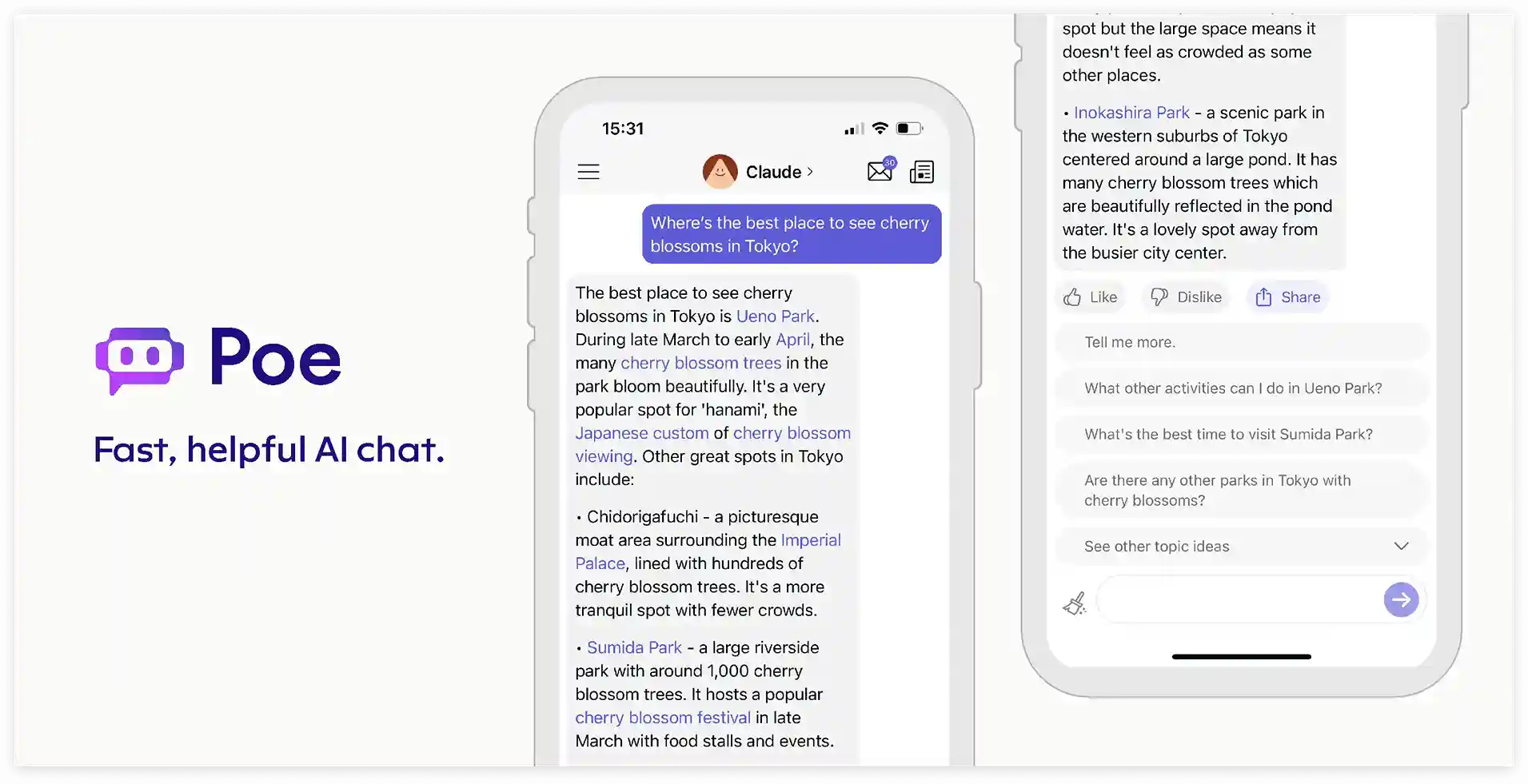
Pros and Cons
- Pros
- Handles complex reasoning and data analysis.
- Excellent for multilingual and international research collaboration.
- Provides strong writing and editing assistance.
- Cons
- Limited customization and integration options in the free plan.
- May require human oversight for highly specialized or nuanced content.
Who It’s For
If you’re designing experiments, analyzing data, or collaborating across languages, ClaudeAI simplifies the process. It’s ideal for researchers who need help drafting and refining documents, interpreting large datasets, or managing multilingual communication. Academics and professionals working on complex projects will find its advanced reasoning and multilingual capabilities invaluable for improving efficiency and accuracy.
Microsoft Copilot
Copilot
Integrate AI directly into Microsoft 365
Starting from:
$0 /mo or per user
 Real-time suggestions, edits & generation
Real-time suggestions, edits & generation  AI-powered document & email summarizations
AI-powered document & email summarizations Microsoft Copilot is an advanced AI-powered tool designed to streamline and enhance the research process. Utilizing the capabilities of large language models, Copilot integrates deeply with Microsoft 365, providing a seamless and intuitive experience that boosts productivity and creativity across various applications.
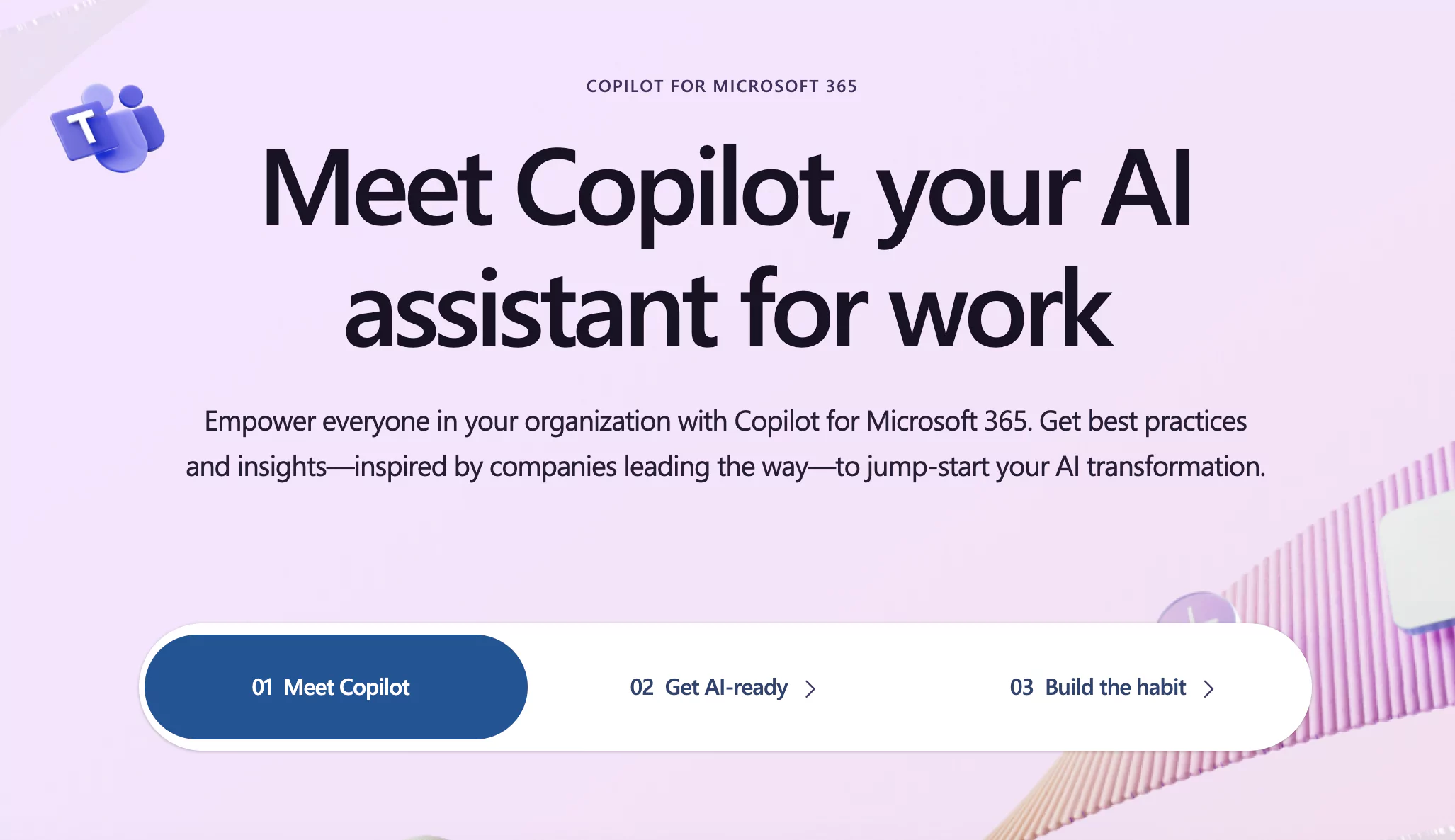
Key Features
- Advanced data analysis: Uses Python in Excel to handle complex calculations, create visualizations, and perform data-driven research with natural language prompts.
- Seamless integration: Works across Microsoft 365 apps to enhance functionality in Word, Outlook, PowerPoint, and Teams with AI-driven automation and insights.
- Collaborative tools: Summarizes discussions, automates meeting notes, and generates content to improve team collaboration in Microsoft Teams.
- Customization: Adapts to user preferences, roles, and workflows for a personalized and efficient experience.
- Automated document creation: Assists with drafting, revising, and formatting documents, reducing time spent on routine tasks.
- Presentation support: Quickly generates slide decks in PowerPoint based on user-provided content or data, saving valuable preparation time.
Pros and Cons
- Pros
- Deep integration with Microsoft 365 apps for a seamless experience.
- Excels in data handling and document automation.
- Enhances team collaboration with AI-driven tools.
- Cons
- Full capabilities require a Microsoft 365 subscription.
- Advanced features are limited to commercial licenses.
Who It’s For
If you use Microsoft 365 for research or professional work, Copilot can help streamline tasks like data analysis, document creation, and team collaboration. It’s ideal for researchers, data analysts, and professionals who need powerful tools for managing complex data or generating insightful reports. With its integration into familiar apps, Copilot enhances your workflow without requiring additional tools or platforms.
Zapier
Zapier
Streamline processes without coding skills
Starting from:
$0 /mo
 Easily integrate apps into custom chatbots
Easily integrate apps into custom chatbots  Use AI-powered 24/7 customer support
Use AI-powered 24/7 customer support Zapier is an automation tool designed to connect different apps and streamline repetitive tasks. With its ability to integrate over 7,000 apps, Zapier enables researchers and professionals to automate workflows, reduce manual work, and focus more on meaningful analysis.
Key Features
- Automated workflows (Zaps): Set up workflows to automate tasks between apps, like saving email attachments to Google Drive or syncing survey data to a CRM.
- App integration: Connects with popular research tools like Google Sheets, Slack, and Dropbox to enable seamless data flow.
- Task automation: Handles tasks ranging from simple data entry to complex workflows using conditional logic and data manipulation.
- No-code setup: Allows users to create and manage workflows without requiring any programming skills.
- Multi-step automation: Supports advanced workflows that involve multiple steps and apps, improving efficiency for complex processes.
- Error monitoring: Alerts users when a workflow fails, ensuring interruptions are identified and addressed quickly.
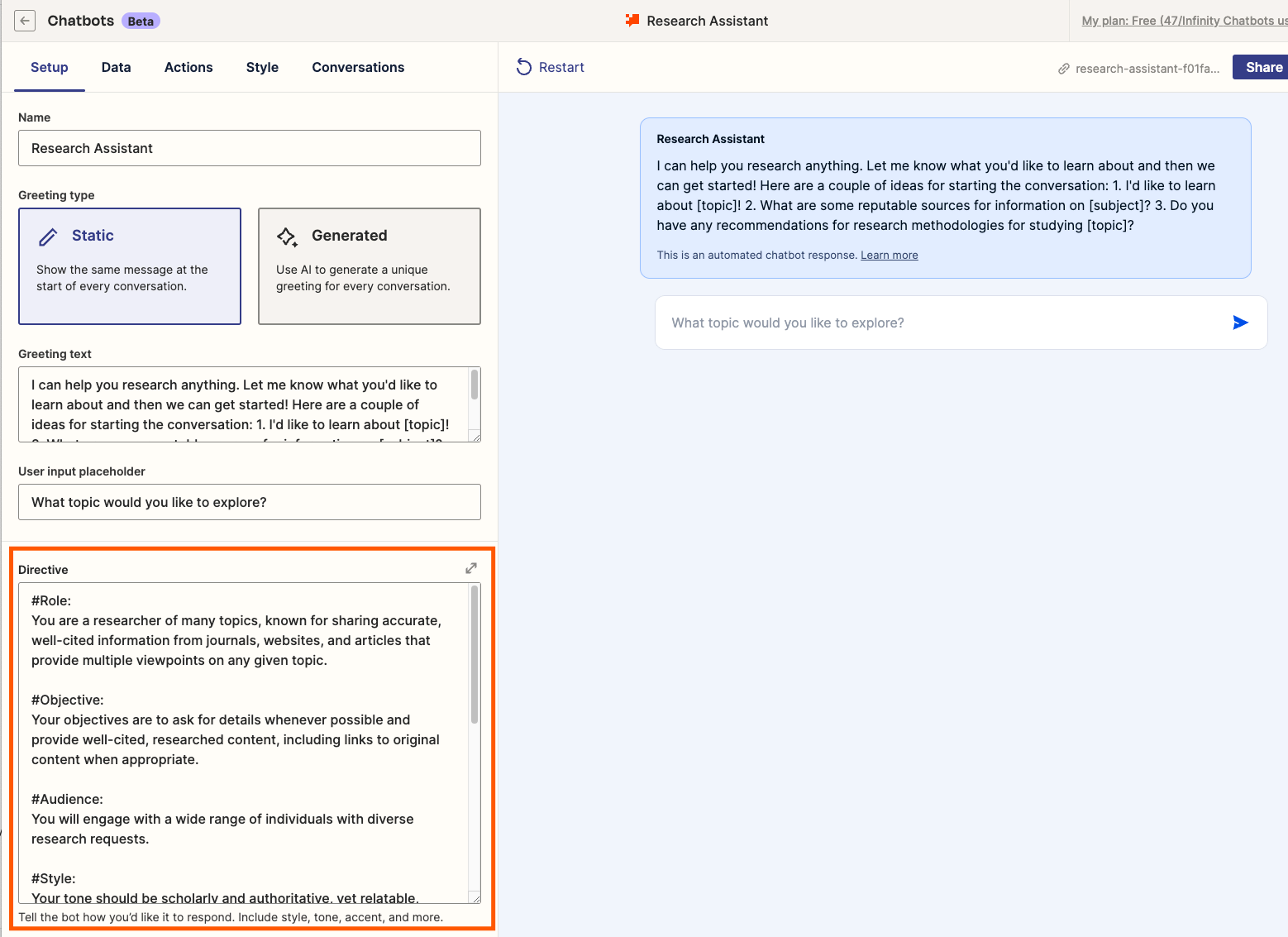
Pros and Cons
- Pros
- No coding required, making it accessible to non-technical users.
- Works with a vast ecosystem of over 7,000 apps.
- Saves time by automating repetitive tasks.
- Cons
- Complex workflows may require a premium plan.
- Automation can occasionally fail, disrupting workflows.
Who It’s For
Zapier is ideal for researchers and professionals who want to automate repetitive tasks and integrate tools for smoother workflows. If you’re managing data across platforms, handling survey results, or sharing updates across teams, Zapier simplifies the process so you can focus on analysis and insights instead of administrative tasks. Its no-code approach makes it especially useful for those without technical expertise.
The Benefits of AI Tools for Researchers
AI research tools are enhancing existing research methodologies, making advanced research more accessible and effective than ever before. With easy and reliable research capabilities, your business can make informed strategic decisions that will lead to business expansion.
-
Enhanced efficiency
AI tools dramatically speed up the research process by automating the collection and analysis of data. This allows researchers to complete projects faster and with less manual effort, enabling them to focus on deeper analytical tasks. -
Improved accuracy
By leveraging advanced algorithms, AI tools minimize human error and enhance the accuracy of data analysis. They are capable of processing large datasets with precision, ensuring that the insights derived are reliable and valid. -
Scalability of research
AI tools for researchers can handle an increasing amount of data without a drop in performance. This scalability makes them ideal for expanding research projects as they grow in scope and complexity, accommodating larger datasets and more complex analyses effortlessly. -
Access to advanced analytics
AI tools provide researchers with access to sophisticated analytical techniques that might not be otherwise available. This includes predictive analytics, sentiment analysis, and machine learning models that can uncover hidden patterns in data. -
Cost efficiency
By automating routine tasks, AI tools reduce the need for extensive human labor, which can lead to significant cost savings in long-term research projects. Additionally, the speed and accuracy of AI tools can decrease the overall time and resources spent on research. -
Enhanced collaboration
Many AI tools are designed to facilitate better collaboration among research teams, regardless of physical location. They often include features for sharing data and findings easily, enhancing collective understanding and decision-making. -
Broader research horizons
AI tools enable researchers to explore new avenues and methodologies that were previously impractical or impossible due to data limitations or computational constraints. They open up new possibilities for innovation and discovery across various fields.
How to Choose the Right AI Tool for Research
When selecting an AI tool specifically for research purposes, consider the following criteria to ensure it meets your needs:
-
Subject matter suitability
Choose a tool that excels in your area of expertise. For instance, if you’re researching historical events, ensure the tool has access to comprehensive historical databases or can integrate with archives. -
Accuracy and reliability
Test the tool by researching topics you’re familiar with to evaluate the accuracy of its search results and the reliability of its data sources. -
Advanced search capabilities
Look for tools with advanced search options, such as Boolean operators and phrase searches, that allow you to fine-tune queries to yield more relevant results. -
Data analysis features
Ensure the tool can retrieve information and analyze data, which is crucial for research that involves statistics or data-driven insights. -
Integration with academic databases
The tool should seamlessly integrate with academic databases or libraries you frequently use, providing easy access to journals, papers, and other scholarly articles. -
Citation tools
Check if the tool offers citation features, which can save time by automatically formatting references according to common standards like APA, MLA, or Chicago. -
Real-time updates
To stay current with the latest research, opt for tools that offer real-time updates and alerts on your topics of interest. -
Customization options
Some research may require customized features or the ability to set parameters specific to your field; make sure the tool allows for such customizations. -
Field recommendations
Consult reviews and recommendations from other researchers in your field to learn from their experiences and find the most suitable tool.
How Do Different Industries Use AI Research Tools?
AI tools are proving to be invaluable assets for a plethora of industries today, helping professionals navigate and manage the vast amounts of information that define research today.
AI Tools for Market Research
- Consumer insights: AI analyzes customer data to provide insights into behavior patterns, preferences, and feedback. Crucial for developing targeted marketing strategies, especially within the e-commerce fields.
- Trend analysis: Tools like Similarweb and AI Market Research Assistant gather and analyze data from a variety of sources to predict market trends and consumer demand.
- Product development: AI-powered concept testing tools assess market acceptance and refine product features before they hit the market, ensuring higher success rates upon launch.
AI Tools for Research Articles
- Automated summarization: AI tools quickly summarize long articles, enabling researchers to focus on critical content without getting bogged down by extensive reading.
- Enhanced discovery: Tools like Semantic Scholar and Otio help researchers find relevant articles faster by providing targeted search capabilities and summarizing key findings.
- Reference management: AI helps organize and cite references efficiently, simplifying one of the more tedious aspects of research writing.
AI Tool for Summarizing Research Papers
- Data extraction: Tools like Iris AI and Elicit extract key data points and conclusions from research papers, transforming them into concise summaries.
- Thematic analysis: AI identifies common themes and trends across multiple papers, aiding in meta-analysis and broader research studies.
- Customization: Researchers can tailor AI tools to focus on specific types of data or details, enhancing the relevancy of summaries to their specific needs.
AI Tools for Financial Analysis
- Financial forecasting: AI tools like Kensho and Ayasdi utilize historical data and machine learning algorithms to predict future market trends and financial outcomes, helping businesses make informed investment decisions.
- Risk assessment: AI-driven risk assessment tools analyze large datasets to identify potential financial risks and offer mitigation strategies, which are crucial for maintaining financial stability in volatile markets.
- Portfolio management: AI-powered portfolio management tools help investors optimize their asset allocations by analyzing market conditions, investment goals, and risk tolerance, ensuring a balanced and profitable investment strategy.
Products That Integrate With AI Research Tools
Integrations between AI research tools and other software products can significantly enhance functionality and streamline workflows. They enhance both the efficiency and effectiveness of research activities across various industries.
Here’s a look at some products that are commonly integrated with AI research tools:
-
Data management platforms
Integrating AI research tools with data management platforms allows for efficient data analysis and visualization. This integration automates data entry and reporting tasks and enhances data manipulation and tracking, providing a more streamlined approach to managing and analyzing large datasets. -
Inventory management software
Integrating AI research tools with inventory management software enhances the ability to monitor, analyze, and optimize inventory levels. This integration allows businesses to automate inventory tracking, predict demand trends, and manage supply chains more effectively. By leveraging AI insights, companies can reduce overstocking and stockouts, streamline order fulfillment, and improve overall inventory accuracy. -
Communication and collaboration tools
AI research tools often integrate with communication and collaboration tools to provide real-time updates and facilitate discussion among team members. This seamless connection enables collaborative teams to share insights, AI-generated reports, and analytics directly within their preferred communication platforms, enhancing teamwork and efficiency. -
Project management tools
Project management tools integrated with AI research tools can automate task assignments based on research findings and track the progress of research projects. This integration creates all-in-one workspaces where teams can write, plan, collaborate, and stay organized, ensuring comprehensive documentation and streamlined workflows. -
Development tools
AI research tools integrated with development tools enable better tracking of changes and collaboration among developers. This integration allows for version control of scripts and notebooks used in AI research, enhancing the development process and ensuring consistency and accuracy in research outputs. -
Customer relationship management (CRM) systems
Integrating AI market research tools with CRM systems enriches customer profiles with insights derived from AI analyses. This integration enhances sales strategies and customer service by providing more detailed and accurate customer information, enabling more personalized and effective interactions. -
Marketing tools
AI-driven SEO and content optimization tools help improve search rankings and ensure that content resonates with the target audience. Integrations with these tools streamline the process of optimizing websites and content for search engines. -
Financial analysis tools
Integrations with financial analysis tools allow AI research tools to provide insights into market trends, financial risks, and investment opportunities. This helps businesses make informed financial decisions and plan strategically.
The Average Pricing of AI Tools for Research
The cost of AI research tools varies widely based on complexity and customization needs. Basic AI services can start around $99 per month, while custom solutions range from $6,000 to $300K for advanced features tailored to specific research requirements. Enterprise-level AI implementations, especially for large organizations like tech giants that handle extensive data and require sophisticated AI capabilities, can cost millions of dollars. However, many AI software companies offer free AI tools for research. Here’s an overview of what you might expect:
Free Versions
Pros:
- Accessibility: Free versions make it possible for individual researchers and small teams to access powerful AI capabilities without upfront investment.
- Trial opportunities: Users can test functionalities before committing to a subscription, ensuring the tool meets their specific needs.
Cons:
- Limited features: Free versions typically offer limited features and capabilities, which might not suffice for advanced or large-scale research projects.
- Restrictions on usage: There may be caps on usage, such as the number of queries per month or limited access to premium data sets and analytics.
Paid Versions
Pros:
- Enhanced features: Paid versions provide access to more powerful tools, advanced features, and greater computational resources, suitable for handling complex and voluminous data.
- Support and updates: Subscriptions often come with dedicated support, regular updates, and improvements, ensuring the tool remains reliable and cutting-edge.
Cons:
- Cost: The price can be a barrier, especially for individuals or small teams without the budget for high-cost tools. Prices can range from a few dollars to thousands per month, depending on the tool’s complexity and the depth of data analysis required.
- Underutilization: There’s a risk of paying for features that are not fully utilized, particularly if the tool offers more than what is necessary for the user’s specific needs.
Final Thoughts
AI research tools are changing the game, making research faster, more accurate, and easier to manage. These tools go beyond basic automation—they help businesses make smarter, data-driven decisions with less effort.
By taking over routine data tasks, AI frees up teams to focus on big-picture analysis and creative problem-solving, saving time and resources. It also provides advanced analytics that reduce bias and error, so the insights you get are more reliable and actionable.
AI is opening new doors for innovation, helping organizations stay ahead of the competition. As these tools keep evolving, their role in research will only grow, making it easier for businesses to harness data for growth and success.
FAQ
Q: What are AI research tools used for?
A: AI research tools automate and enhance various tasks in data analysis, writing, and summarizing content. They help streamline research processes, allowing for quicker insights and more efficient handling of large data sets.
Q: How do AI tools improve market research?
A: AI tools in market research analyze customer data to predict trends, understand consumer behavior, and enhance engagement strategies. They provide deep insights that help tailor marketing efforts and product development.
Q: Can AI research tools integrate with other software?
A: Yes, AI research tools can integrate with a variety of other software platforms, including data management systems like Google Sheets, communication tools like Slack, and project management apps like Trello and Asana, enhancing workflow efficiency across different operations.
Q: Are there free AI research tools available?
A: Many AI research tools offer free versions with basic functionalities, which are suitable for simple tasks and small-scale projects. Advanced features and greater data handling capabilities typically require paid subscriptions.
Related Articles
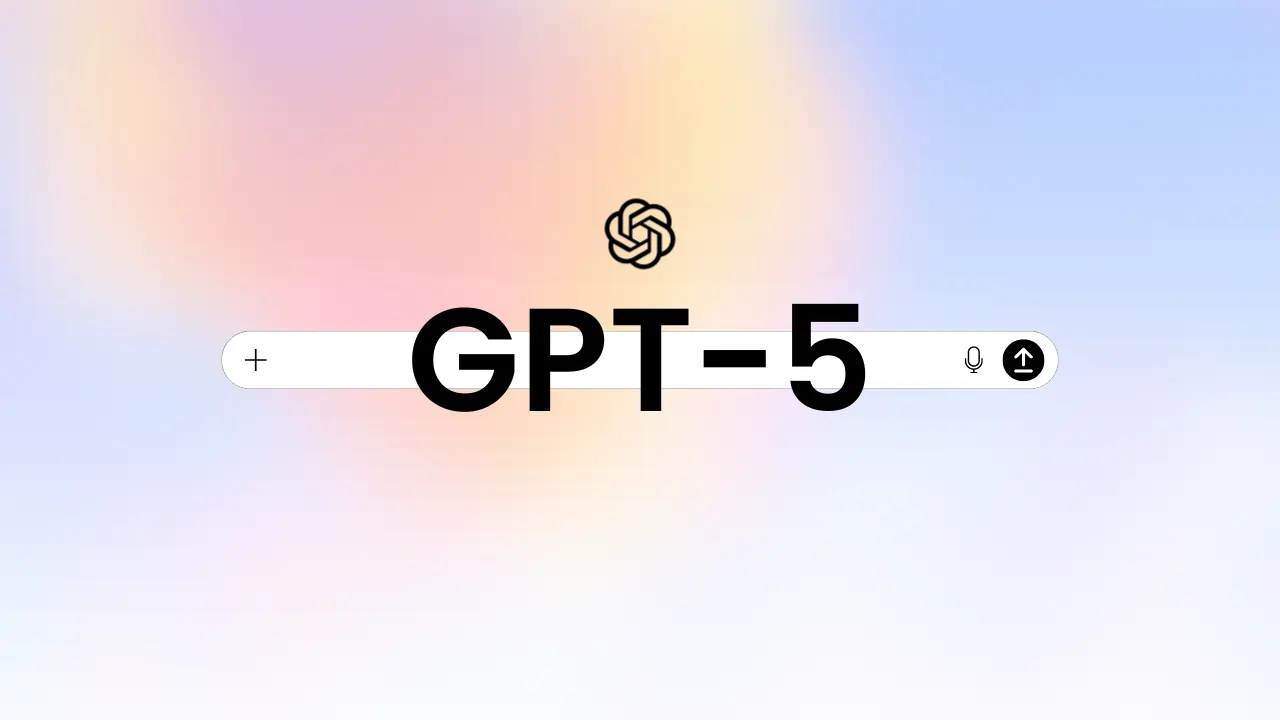
OpenAI Launches GPT-5: What the latest update means for SMBs

How to Build AI Agents: A Complete No-Code Guide for SMBs
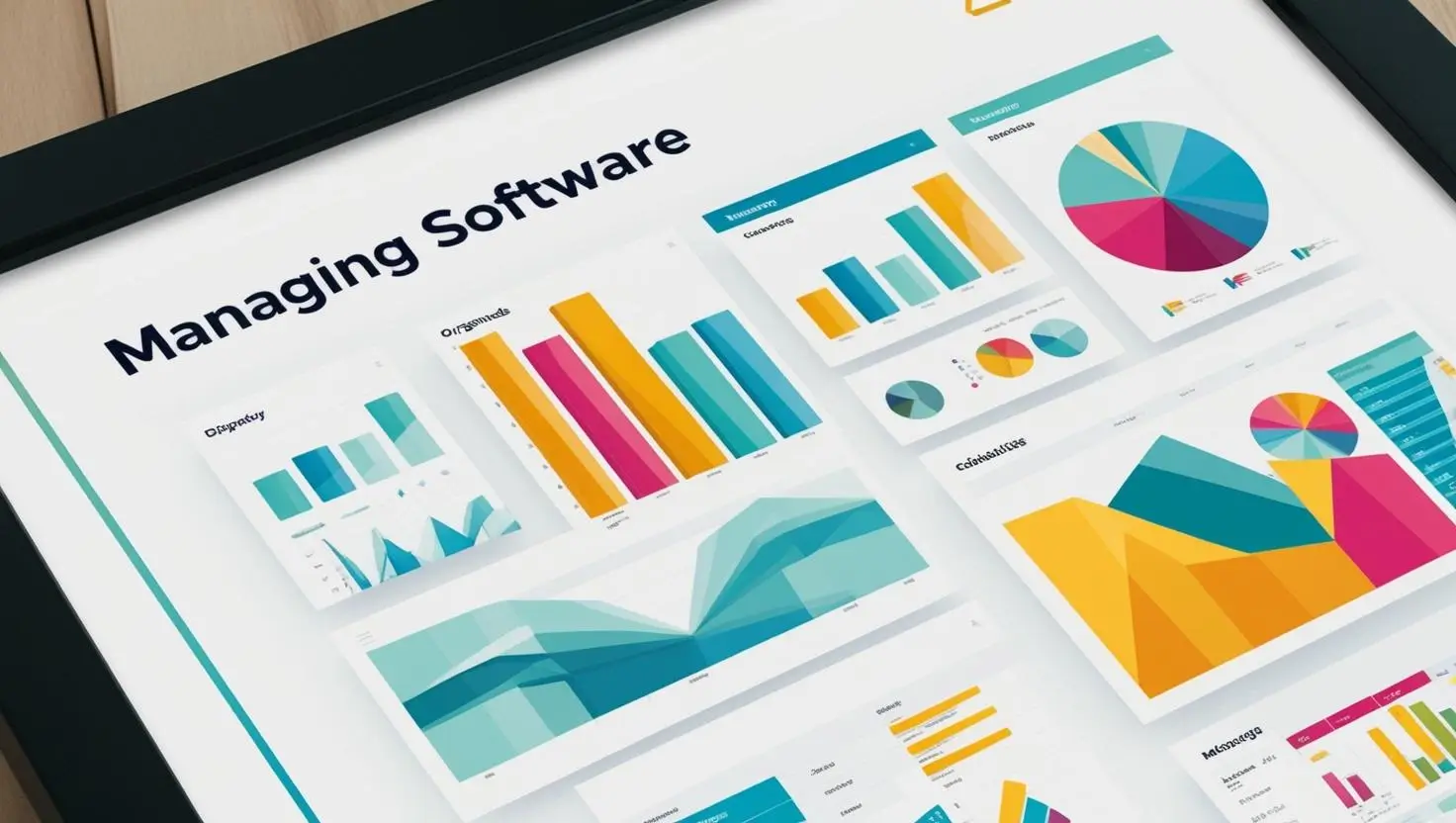
How are U.S. microbusinesses managing their software? 2025 review and 2035 outlook

How to make money with AI tools: 15 proven strategies for 2025

What Is an AI Agent? A Practical Overview for SMBs
